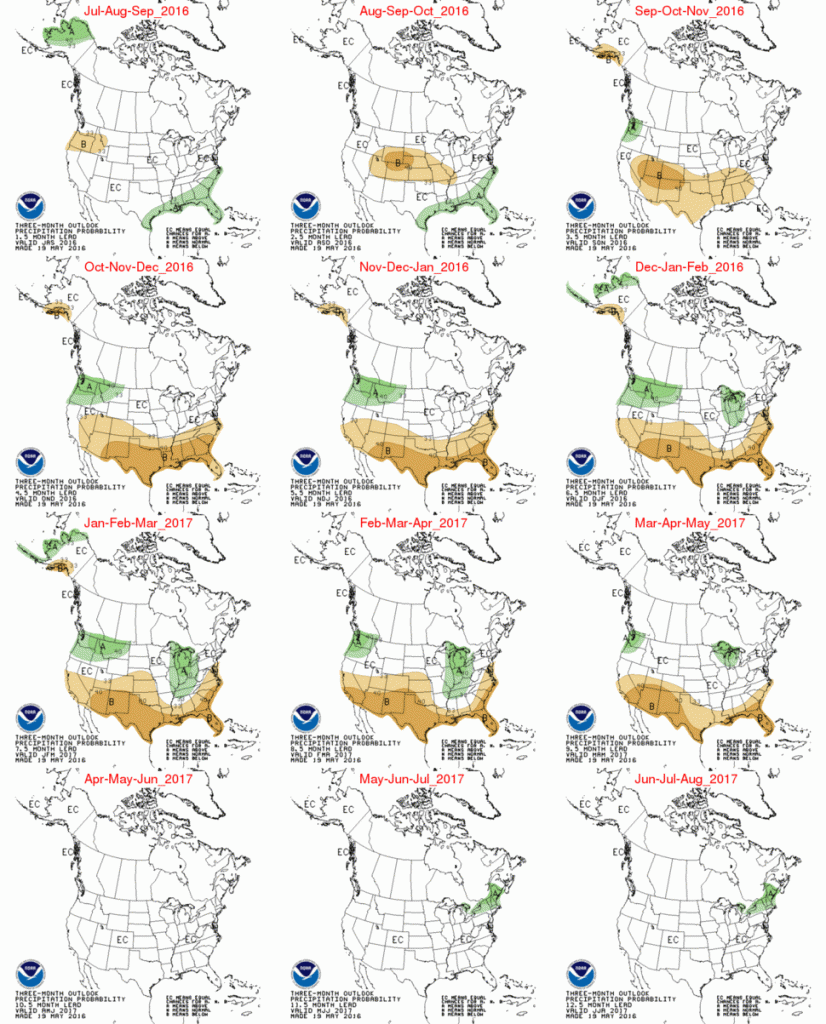Today’s long lead outlook from the Climate Prediction Center is enough to make a southwestern water manager long a second consecutive busted forecast*. With La Niña in the offing, the maps show creeping brown across the Four Corners states by August and not letting up until late spring of 2017:

Source: Climate Prediction Center
* Last winter’s forecast, for a wet year down here, didn’t exactly come off as planned. I’m being glib here, not critical. The nature of probabilistic forecasting is that they will be “wrong” a significant portion of the time. It’d not a “prediction”.

John, some of us (me!) would love to hear your thoughts on today’s piece in the NY Times, “Unplugging the Colorado River.”
Left hanging without an answer in the article (and I’m sure the topic of research with at least tentative conclusions) is the fate of water leaking from the bottom of the Glenn Canyon dam’s reservoir.
Piece is here: http://nyti.ms/23ZEnhy
Thanks for your excellent and informative blog.
i find such articles interesting because
they are a sign of the times… dam
removals.
the interesting assumption is that water leaked
is lost, but where does it go? eventually as
ground water it returns to rivers or gets pumped
out, seems better to have it in the ground and
not subject to evaporative losses than to be
gone into the air. anyways, it returns as rain
somewhere.
one loss, one gain, it’s called the hydrologic
cycle.
I’m guessing that as this issue has been examined fairly closely by hydrologists there’s probably some legitimate questions as to the fate of water lost to the bottom of the reservoir. We can say for sure that water does not vanish but it may indeed still be effectively lost to us for the kind of time spans we’re concerned with– tens to hundreds of years, or even more.
One of the dangers for outsiders swept into a conversation among experts and requiring deep expertise to progress is that as outsiders we may think ideas that are obvious to experts are something they’ve not considered, because these ideas seem fresh to us. From the other perspective, experts may forget that patience and a willingness to state the obvious is necessary to help neophytes quickly come up to speed. I’ll cite the NY Times article as a case in point; for us laypersons there’s a big question left hanging in the air, one that needs to be addressed before one can decide how much concern is warranted by the issue.